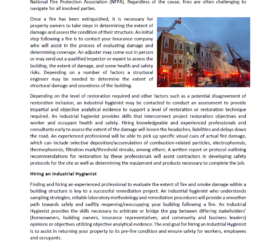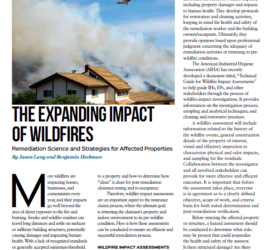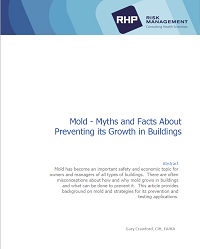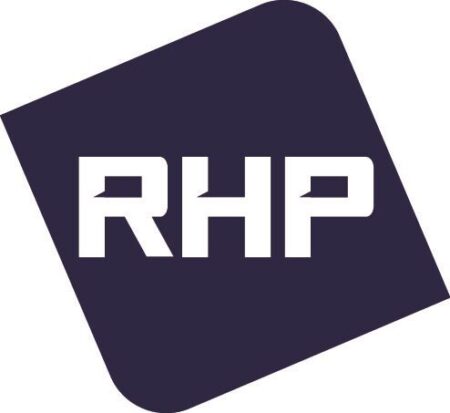Indoor environmental quality (IEQ) generally refers to the quality of a building’s environment with respect to the health of its occupants. RHP specializes in IEQ testing in commercial buildings, industrial facilities and residential homes.
Indoor environments have high variability from building to building and may present complex issues, including thermal conditions, air quality, lighting, dampness & even personal hygiene. Maintaining the health of a building’s indoor environment is critical to maintaining the health of its occupants. A healthy indoor environment will support elevated focus, reduced stress and injuries and allow occupants to conduct their business. Increased IEQ also supports the relative value of a building and reduces the risk and liability for building ownership and/or management.
Indoor environments have high variability from building to building and may present complex issues. Some of the more common sources include: airborne chemicals; airborne particulates; combustion byproducts; dampness & mold growth; ergonomics (lighting & noise); poor ventilation; temperature & relative humidity; tobacco & vaping smoke; and Volatile Organic Compounds (VOCs).
Inspections and Testing
RHP’s approach to projects varies depending on the nature of the problem. Each project typically requires an interviewing process to gather essential information followed by a walk-through of the space to understand the client’s concerns. Once an understanding of the project objectives is established, RHP is able to conduct the investigation.
RHP utilizes state-of-the-art monitoring and sampling equipment in order to provide the most accurate and defensible data. If desired, RHP can provide a written representation or oral summary on the details of our findings and recommendations.
RHP’s expert team of certified industrial hygienists, public health scientists, and certified safety professionals carry decades of experience working closely with clients and regulatory agencies in identification, analysis, and management of existing and potential health concerns associated with air quality issues.
Related RHP Authored Documents

Post-Fire Structural Damage Assessments and Remediation
Luke Nienhaus, CIH

The Expanding Impact of Wildfires – Remediation Science and Strategies for Affected Properties
Ben Heckman, MPH, CIH / Jason Lang, CIH, CSP

Mold – Myths and Facts About Preventing its Growth in Buildings
Gary Crawford, CIH, FAIHA
 Scientific risk-based guidance and solutions you and your company can trust.
Scientific risk-based guidance and solutions you and your company can trust.
RHP Risk Management is a leader in the field of Industrial Hygiene, Indoor Air Quality (IAQ), Built Environment, Risk Management, Dose Estimation & Analysis, and Exposure Simulation Testing. Our highly trained and sophisticated team of professionals work together seamlessly on small and large projects. Our roster includes certified industrial hygienists, public health scientists, risk assessors, certified safety professionals, field staff, an engineer, an anthropologist, an economist, certified paralegals, and support staff.
We work with our clients to develop solutions to their most pressing concerns. Understanding exposures and risks through a grounding in a sound, defensible, state- of- the- art scientific approach gives our clients peace of mind. Empowered by a comprehensive understanding of exposures we can provide, clients are better equipped to recognize previously unseen business risks, manage known risks, target areas for control systems, comply with regulations, and to be braced for regulatory or litigation actions. Senior staff have served as experts in front of stakeholders, public, workers, regulatory, and State and Federal courts.
